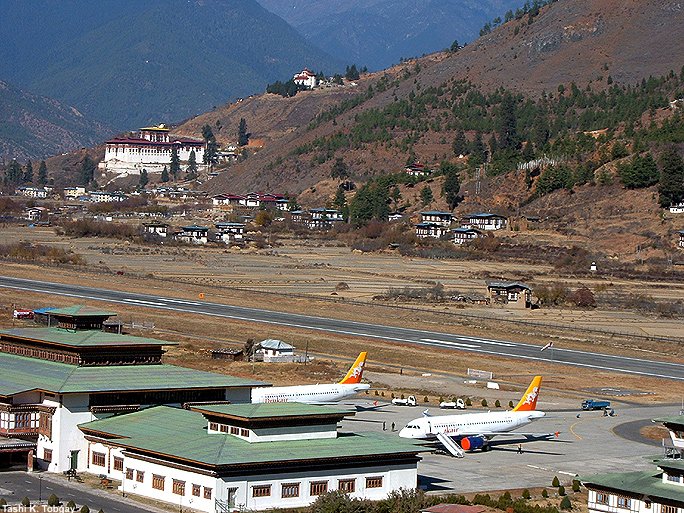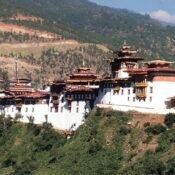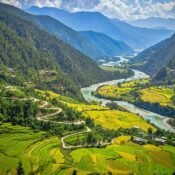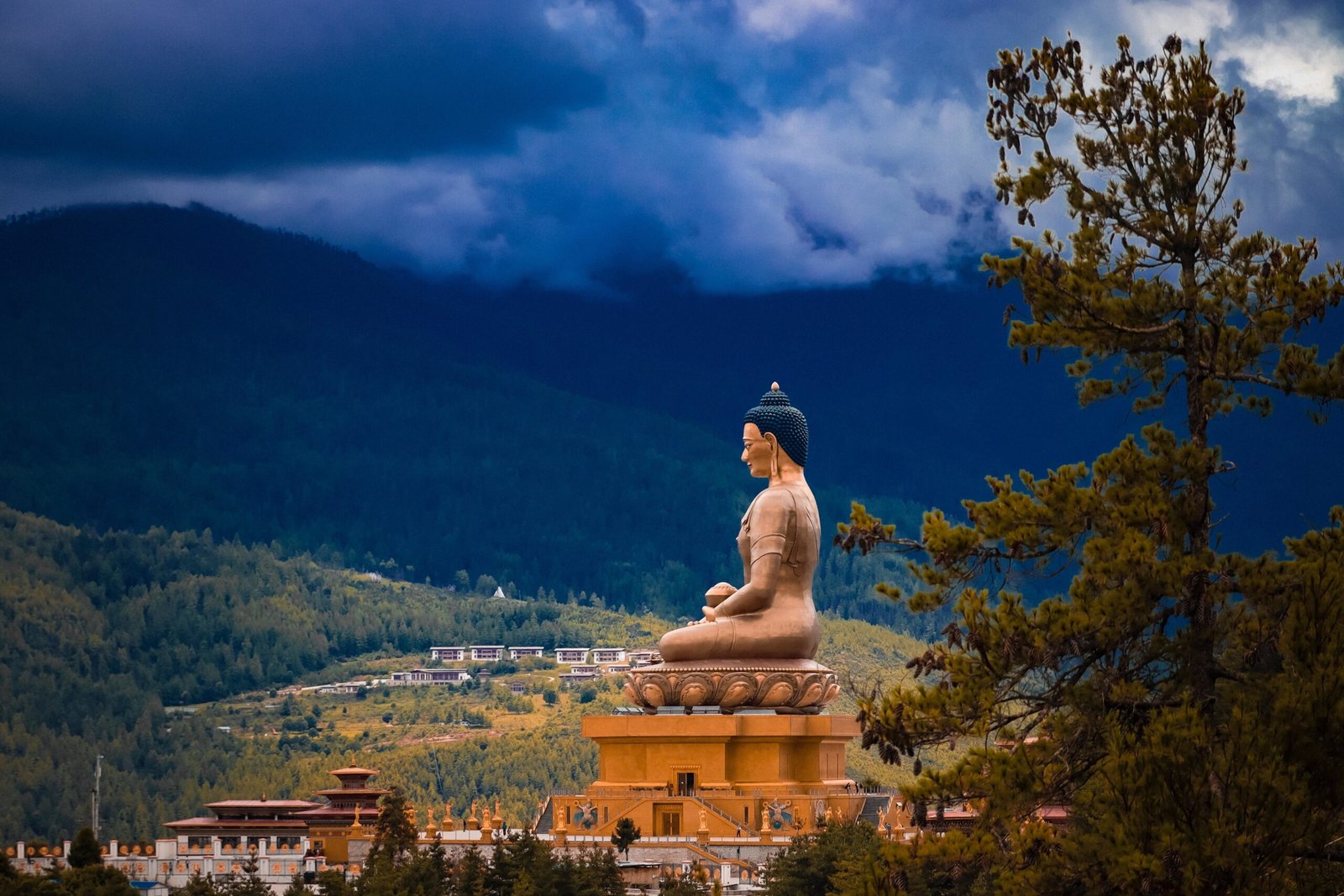Pre- Departure Information

Pre- Departure Information
Visa and Passports:
A visa is needed to enter Bhutan but it is not issued abroad. Visas will be stamped in your passport upon arrival in Paro
Customs:
All visitors are required to complete a customs form upon arrival at Paro. The following items are exempt from customs duty:
a. Personal effects for day to day use
b. Instruments, apparatus or appliances for professional use
c. Photographic equipment, video cameras and other electronic goods
Note:
Import of tobacco and tobacco products for personal consumption – 100% sales tax and 100% customs duty. The maximum allowed for personal consumption are:
a. Cigarettes: 1 carton of 200 cigarettes.
b. Pipe tobacco: 3 tins of 50 grams each.
c. Other tobacco products: 50 grams.
Customs regulations strictly forbid the export of antiques or religious objects out of the country unless you have clearance from the Antiquities Department. If you are carrying religious items from another country, declare them on your customs form on arrival in Bhutan to avoid any problems on departure. It is forbidden to export samples of flora & fauna.
Weather:
The temperature and weather can change quickly and you may experience different climates in one day. Depending on the altitude, you may be freezing on top of a pass and an hour later you may be in a semi-tropical jungle. It is difficult to generalize about the climate of Bhutan because of the variations in elevations and seasons. October is usually cold. But it is very unpredictable; there can be rainfall during night time and warm sunny weather during the day. Average temperature in Places you are visiting in October will be : Min: 10, Max: 18.
Clothing:
Practical and comfortable clothes are appropriate, with dressy outfits only necessary if you are on a business trip in Bhutan. Because of the variety of climates you may encounter in one day, choose garments which can be layered. From June to September cottons and a warm woolen sweater and a light jacket should be enough. You are also advised to bring a rain gear or an umbrella.
Electricity:
Officially 220 volts is supplied by the Department of Power. But the power supply can fluctuate. Some hotels and lodges don’t have American plug points or converters.
Battery:
In most places around Bhutan you will find the Indian made batteries available. But quality is very poor. It is advisable to bring your own supply of batteries. The only other possibility is purchase in Thimphu.
Time Difference:
Bhutan is 6 hours ahead of G.M.T. and half an hour ahead of India.
Money Matters:
The currency is the Ngultrum, which are at a par with the Indian Rupee. The Indian Rupee is also legal tender in Bhutan except for the denomination of 500 notes which are banned in Bhutan because of counterfeit. All the Banks in Bhutan accept the following currency:
US dollar
o Euro
o Pound Sterling
o Canadian dollar
o Hong Kong dollar
o Singaporean dollar
o Australian dollar
o Japanese Yen
o Swiss Francs
o Danish Kroner
o Norwegian Kroner
o Swedish Kroner
o Traveler’s cheque
Credit Card:
There is no credit card facility available to cash money from banks. But it is accepted at all leading Gift shops, Handicraft stores and by hotels.
Business Hours & Holidays:
Government office hours are Monday to Friday 9 am – 4 pm from November to March and 9am – 5 pm for the rest of the year, closed Saturday & Sunday.
Banking hours: Monday – Friday 9am – 3 pm. Saturday 9am – 11 am
Taxes:
A departure tax of Nu.500 Ngultrum (US$ 12) is levied at Paro airport.
Transportation:
Your transportation within Bhutan is arranged in a Japanese Imported SUV.
Hotels:
Hotels in Bhutan are not as high standard, compared to other developing countries. But all tourist lodges & hotels are recognized and regulated by the Department of Tourism. Your accommodation in various places in Bhutan has been booked at the following Hotels / lodges.
Thimphu: Hotel Migmar http://www.hotelmigmar.bt
Paro : Tashi Namgay Resort
Punakha: Kuengaling Guest house
Trongsa: Hotel Norling
Bumthang: Samden Norzin Lodge
Gongkhar Guest house
Gangtey: Gakiling Lodge
NOTE: As we move further towards central and eastern Bhutan hotels amenities are reduced.
Health:
Every district in Bhutan is equipped with a General hospital, but only at Thimphu will you find modern facilities and Pharmacies. Come well prepared with all necessary medicines like sleeping pills (high altitude can hinder your sleeping), anti-nausea pills, anti-diarrhea pills, oral dehydration packets, eye drops, antibiotic ointment and anti-histamine ointment.
Medical Services:
Every District has hospitals staffed with competent doctors and offer basic services but there is no Intensive Care Unit and most patients are referred to Jigme Dorji Wangchuk National Referral Hospital at Thimphu.
COMMUNICATION AND NEWS
Post:
Mail service within the country and airmail abroad is available, but can be slow at times, unless it is registered or express mail. International parcel post is also available. Bhutanese stamps are particularly beautiful. Do not miss the Philatelic Bureau in Thimphu.
DHL is owned and run by a private company. They have an office in the Changangkha area: Tele: +975-(2) 324730 Ext 15. Fax: +975-2-322088
Telephone:
Telephone & fax services were started in 1990 and now have been upgraded to international standard. It is now possible to direct dial from any part of the country. The Bhutan country is code +975. Telephone communication is very reliable in Bhutan.
Internet:
Internet Service in Bhutan was introduced in 1999 coinciding with the Sliver Jubilee celebration (25 years ruling) of the 4th King. Now it is available in every tourist lodge/hotel as well as in town Cafés at cheaper rates.
Television:
Television was also introduced in 1999 and we have our own channel called BBS (Bhutan Broadcasting Service) which was made nationwide recently in the month of April 2006. It broadcasts in two different languages, Dzongkha and English. Besides news they also feature documentaries and other activities. In addition to this, there are around 30 other international channels.
Mobile:
Mobile was introduced in the month of November 2005 and now covers up to 9 districts in Bhutan. It has two categories of services. Post Paid and Pre-Paid.
1) Post Paid: Monthly billing system.
2) Pre-paid: Voucher range Nu.100, Nu.200, Nu. 300, Nu.500, Nu. 1000. Nu.1500.
3) Sim Card is available at every dealer shops.
Two Categories of SIM CARD:
1) NU. 600 can receive incoming calls up to 6 months without voucher recharge.
2) NU. 400 can receive incoming calls up to 4 months without voucher recharge. After which the card expires if not recharged.
NEWSPAPERS
Three Categories:
1) Kuensel, is owned by the Government and is distributed twice a week on Wednesday and Saturday in three languages:
1.English
2.Dzongkha (National Language)
3. Lhotsham (Nepali)
2) Bhutan Times: It is owned by a private sector and was introduced recently on 5th April 29, 2006 and is distributed once a week on Sundays. (English version only).
3) Bhutan Observer: started on 2nd June 2006 coinciding with the 4th king’s 32nd coronation celebration is distributed once a week and is especially design to cover rural news. It has two versions (English & Dzongkha).
Laundry:
It is usually possible to have clothes washed and ironed in one day. Dry cleaning is possible with every lodge and hotel that has been approved by the Department of Tourism. Consign in the morning and pickup in the evening.
Recent Posts
Wangdue Bhutan
Bumthang Bhutan
Haa Valley
Quick booking process
+(975) 77217799




